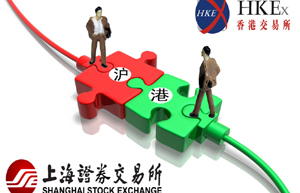Confusion over the definition of "5 percent" also makes investors eager for an explanation of the mainland's short-swing profit rule, which aims at discouraging short-term speculation.
Under the mainland's Securities Law, if a shareholder who holds at least 5 percent of a listed company's shares sells those shares within six months of the original purchase, or repurchases the shares within six months after selling them, the profits belong to the issuing company.
 |
 |
Taxes are another uncertainty for fund managers.
So far, no announcement has been made about whether overseas A-share investors who board the through train are liable for the 10 percent capital gains tax applicable to their mainland peers. Nor has there been any arrangement on how taxes, if due, should be collected.
"The capital gains tax is a massive concern," said Maynard. "In the 13-year history of the qualified foreign institutional investors program, nobody has ever received a tax bill.
"But unlike the QFII program, with the through train, global clients can trade A shares through different brokers. It will be very difficult for finance teams to work out where, when and who is going to be taxed," he said.
"I'm working on the basis that no announcement will be made," he added.
If there are tax implications for the stock connect program, the authorities will also have to go back to QFII investors and collect unpaid tax, he said. "I don't think the mainland tax authorities have the ability to go through 13 years of records to ask for the 10 percent capital gains tax."
The China Securities Regulatory Commission, the mainland's equity market regulator, said it is working with various departments to resolve the problem.
"The tax issue has been one of our focuses since we started preparing for the Shanghai-Hong Kong Stock Connect. The fiscal and taxation authorities have been very supportive to us," said spokesman for the CSRC, Deng Ge, on last Friday.
He said the issue involves various laws and has broad implications.
"We have to strike a balance between fairness and the authority of the current tax policies and be creative and flexible toward the new scheme. The decision to revise the relevant regulations needs to be made cautiously, based on comprehensive consideration.
"We are working closely with relevant departments to solve the problem as soon as possible."
